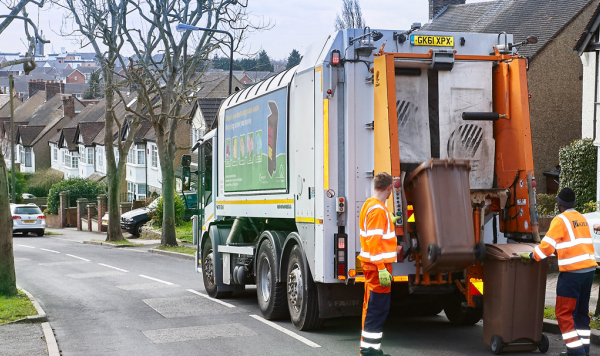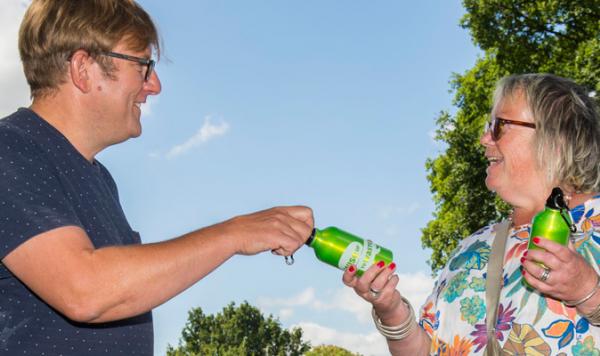Request
Your article states that ' plastic is sold to other countries who use it make new products' this is simply not the case and I am sure you know that.
Our recycling gets mainly sent to Malaysia (Jenjerom) and Thailand. These countries have cities filled with our plastic waste, which either gets burned, or dumped in our oceans. The people deserve to know the truth. Biffa have been a disgrace at sorting the plastic and even sent dirty nappies to China. What's being done in North London to sort this problem? This government website should not be sugarcoating or pulling wool over anyone's eyes. Saying it gets sent abroad to 'make new products' is simply wiping your hands clean on it. You should be ashamed.
Response
Thank you for your email regarding the destination of recyclable material collected in north London. Please also accept our apologies for the delay in replying.
We take the risk of pollution caused by recyclable materials extremely seriously. We have been shocked by stories of local authority recycling dumped or burned in Southeast Asia and have taken (and continue to take) a number of steps to make sure this never happens to north London’s recycling:
- We invest significant resource into tracing the ‘end destinations’ of north London’s recyclables. This includes regular audits of Biffa’s (the company with whom we have a contract for recycling services) documentation to verify the end reprocessing destinations.
- Biffa will only sell recycling to facilities outside of the EU if they are licensed and approved by the Environment Agency as having comparable environmental standards to facilities within the EU.
- Where recyclable materials are exported, documentation produced by Biffa, in accordance with Trans Frontier Shipment Regulations, allows NLWA officers to identify the individual facility which a given load of recyclable material is exported to.
- Our new (since December 2019) contract with Biffa for handling recyclable material requires Biffa to use UK reprocessing facilities where these are available.
- The new contract also makes provision for greater transparency and additional reporting requirements around the movement and end destinations of materials that are exported for reprocessing.
- Biffa is currently planning the construction of an additional plastics recycling facility, meaning they will soon be able to recycle a wider range of plastics at their own UK facilities.
It should also be noted that Biffa operates a company-wide policy of not exporting plastic films. Plastic film, including carrier bags, has been widely reported in the UK press as being mistreated in several export locations, such as Malaysia and Turkey. This low-grade material has little or no value and so mixed plastics received by disreputable recycling companies in these countries may be sorted to extract the higher value container plastics, with the plastic films then being illegally discarded, leading to damaging environmental practices such as burning or dumping in water courses. By not exporting plastic films, Biffa eliminate the risk of this happening. Unfortunately, there is only a very limited market for the recycling of plastic films within the UK and this means that plastic carrier bags contained within north London’s recycling sometimes have to be sent for disposal as waste.
The information on our website explains what happens to all recyclable material, including plastics. NLWA seeks to reassure residents about the end destinations of recyclables and shares details of all recycling destinations on our website here. A proportion of glass and paper is exported to EU countries, and some paper and cardboard is exported to recycling facilities in Asia. All plastics recovered from north London’s mixed dry recyclables are sold to facilities within the UK for processing. Biffa operate their own recycling facilities for processing some types of plastics (HDPE and PET) in North Yorkshire and County Durham. Biffa use several other recycling companies in the UK to recycle other types of plastics, which do not meet the input specifications of their HDPE or PET facilities.
Finally, you refer to the contamination of paper exports in 2015 where a container of mixed papers was found to be heavily contaminated. Subsequently, in 2017 Biffa made a multi-million pound investment in the paper sorting technology used at their MRF to help eliminate this sort of contamination. This means they are now able to produce a better quality product than the industry average. NLWA takes these issues very seriously but is satisfied that appropriate remedial action has been put in place to prevent such an incident happening again.
NLWA works hard to communicate that waste prevention and proper recycling is everyone’s responsibility, including by informing residents that nappies should not be placed in the recycling bin in the first place. Our ongoing ‘Bin Your Nappy’ communications campaign began in summer 2019 to raise awareness of the issue of nappy contamination of recycling. We are also working with nappy manufacturer groups to try and improve labelling of nappy packaging to ensure disposal information is clear to consumers.
I hope this information provides you with some reassurance around the treatment of recyclable material in north London but please don’t hesitate to contact us if we can be of any further assistance.


